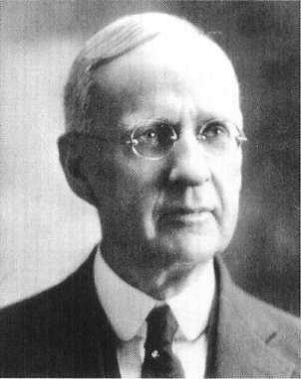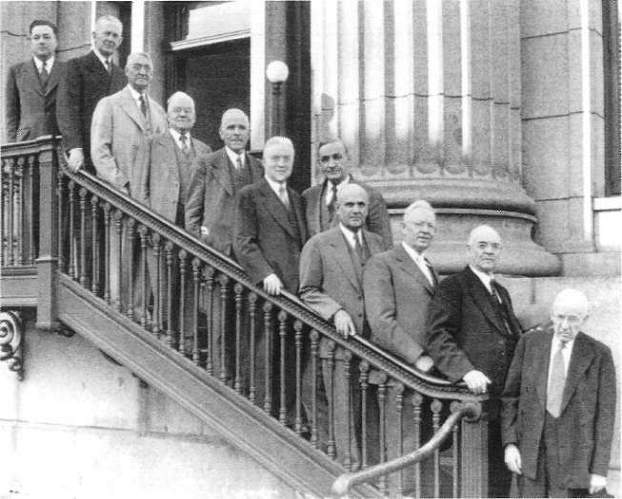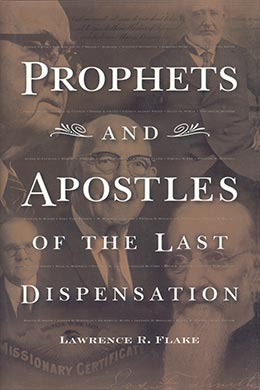Rudger Judd Clawson
Lawrence R. Flake, Prophets and Apostles of the Last Dispensation (Provo, UT: Religious Studies Center, Brigham Young University, 2001), 259–63.

Born: 12 March 1857, Salt Lake City, Utah
Quorum of the Twelve Apostles: 10 October 1898 (age 41)
Second counselor to President Lorenzo Snow (sustained but not set apart): 6 October 1901 to 10 October 1901
Returned to the Quorum of the Twelve: 10 October 1901
Acting President of the Quorum of the Twelve: 1 June 1919
President of the Quorum of the Twelve: 17 March 1921
Died: 21 June 1943 (age 86), Salt Lake City, Utah
On 9 July 1879, as Elder Rudger Clawson and his missionary companion, Joseph Standing, were traveling through Whitfield County, Georgia, they learned that a fierce spirit of persecution raged against the Mormons in that area. They sought refuge for the night in the home of a nonmember who was friendly to the missionaries. The next morning they were accosted by a mob of twelve ruffians and dragged from the public road. After some bitter abuses had been hurled at the missionaries, a member of the bloodthirsty band cruelly shot Elder Standing through the head. Rudger’s first impression was to run, but one of the men yelled, “Shoot that man.” Instead of running, Elder Clawson turned calmly around, faced the mob squarely, folded his arms across his chest and said, “Shoot.” At this remarkable display of courage, the guns were lowered and Elder Clawson was permitted to depart and seek help. Returning a few hours later, he was horrified to see that the mob had fired several more bullets into the face and neck of his martyred companion. [1] When he went through the grueling ordeal of testifying at the trial of four of these assassins, he saw the cause of right thwarted as the court reached a verdict of “not guilty.”
Elder Clawson’s exposure to the mockery of justice did not end with this experience. Five years later, during the crusades against plural marriage, he was tried and found guilty of unlawful cohabitation. When given the choice of rejecting his beliefs or serving a prison term, he remained true to the laws of God and went dutifully to the loathsome cell. There he remained for three years, a time that was made bearable only by the companionship of many other worthy brethren incarcerated in that same prison, including his own good father and the aged apostle Lorenzo Snow. Again his calm courage was reflected in the comment he made upon his release: “During my imprisonment of three years, one month, and ten days, I never once felt to murmur or complain, and as I emerged from the prison walls my faith in the principle of plural marriage was just as firm and unshaken as when I entered. I felt to praise and glorify the Lord that He had deemed me worthy to suffer bonds and imprisonment in defense of the right.” [2]
 Quorum of the Twelve Apostles, 1941–43. Right to left: President Rudger Clawson, George F. Richards, Joseph Fielding Smith, Stephen L Richards, Richard R. Lyman, John A. Widtsoe, Joseph F. Merrill, Charles A. Callis, Albert E. Bowen, Sylvester Q. Cannon, and Harold B. Lee
Quorum of the Twelve Apostles, 1941–43. Right to left: President Rudger Clawson, George F. Richards, Joseph Fielding Smith, Stephen L Richards, Richard R. Lyman, John A. Widtsoe, Joseph F. Merrill, Charles A. Callis, Albert E. Bowen, Sylvester Q. Cannon, and Harold B. Lee
Brother Clawson was born 12 March 1857 to Hiram B. and Margaret Gay Judd Clawson in Salt Lake City. While still a child, he received inspiration from reading and studying the Book of Mormon and from listening to the Brethren preach in the Tabernacle. When he was eighteen he traveled as secretary to apostle John W. Young; this was a broadening experience for the impressionable young man. After his release from prison in 1887, Elder Clawson was called to settle in Brigham City and preside over the stake there. Although he admitted that leaving Salt Lake City was a great sacrifice for him, he unhesitatingly moved to Brigham City and made an outstanding contribution to the growth of the Church in that area. On one occasion he participated with apostle Lorenzo Snow in restoring the life of Ella Jensen, a young member of his stake who had been dead for several hours. [3]
In 1898 Elder Clawson was called to the Quorum of the Twelve and three years later was chosen as second counselor in the First Presidency to Lorenzo Snow, with whom he had been imprisoned. Elder Clawson was never set apart for this position because President Snow passed away just four days after general conference.
Returning to the Quorum, he served a total of forty-five years as an apostle, including twenty-two years as president of the Twelve. In all of his service to the kingdom, he was known as a man of courage. He was described as “a peace-loving, quiet-spoken, mild-mannered, mellow-tempered man, always gentle but adamant for the truth.” [4] Some men have become renowned for one dramatic deed of valor and have not measured up to it again for the rest of their lives, but Elder Clawson showed that he possessed both the ability to face a dangerous crisis and the ability to live valiantly day by day in faithful service to the Lord. [5]
Notes
[1] Bryant S. Hinckley, “The Youth and Early Manhood of Rudger Clawson,” Improvement Era, March 1937, 136–37.
[2] Nephi Anderson, “Apostle Rudger Clawson,” Lives of Our Leaders: Character Sketches of Living Prophets and Apostles of the Church of Jesus Christ of Latter-day Saints (Salt Lake City: Deseret News, 1901), 251.
[3] David S. Hoopes and Roy Hoopes, The Making of a Mormon Apostle: The Story of Rudger Clawson (Lanham: Madison Books, 1990), 156.
[4] Hinckley, “Youth and Early Manhood,” 134.
[5] Richard L. Evans, “President Rudger Clawson,” Improvement Era, August 1943, 461, 511; Richard L. Evans, “President Rudger Clawson Who Has Continued Long in Good Works,” Improvement Era, March 1942, 138, 189.
